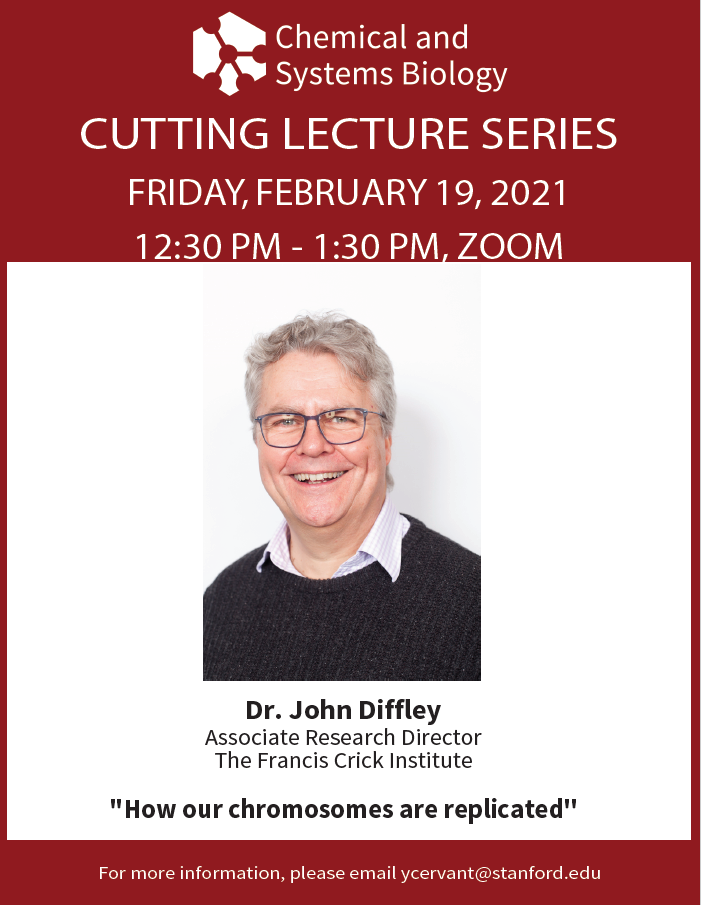CSB Cutting Lecture by Dr. John Diffley, The Francis Crick Institute
Friday, February 19, 2021 Zoom 12:30 PM - 1:30 PM
The Department of Chemical and Systems Biology Presents
Dr. John Diffley
Associate Research Director
The Francis Crick Institute
Talk Title: “How our chromosomes are replicated”
Abstract: The eukaryotic cell cycle coordinates the accurate duplication and segregation of the genome during proliferation. The large genomes of eukaryotic cells are replicated from multiple replication origins during S phase. These origins are not activated synchronously at the beginning of S phase, but instead fire throughout S phase according to a pre-determined, cell type specific program. In addition to duplication of genomic DNA, all of the protein components of chromosomes must be duplicated and placed in the correct locations during S phase so gene expression patterns can be maintained. Replication must also be coordinated with many nuclear processes including sister chromatid cohesion, replication checkpoint activation, postreplication repair and chromatin assembly.
Ensuring that each origin is efficiently activated once and only once during each S phase is crucial for maintaining the integrity of the genome. This is achieved by a two-step mechanism. The first step, known as licensing, involves the loading of the Mcm2-7 proteins into pre-replicative complexes (pre-RCs) at origins. In the second step, the MCM helicase is activated by a large set of ‘firing factors’. These two steps are differentially regulated by cyclin dependent kinase (CDK): licensing is inhibited by CDK, whilst firing requires CDK. As a consequence, licensing can only happen during G1 phase, when CDK activity is low, and origin firing cannot occur during G1 phase. Misregulation of this system can generate chromosome rearrangements which may contribute to genome instability in cancer.
We have described the reconstitution of yeast DNA replication with purified proteins. I will present recent results using this system to study the mechanism of DNA replication and the processes associated with it, ensuring accurate chromosome duplication.
Reading Material:
1. Chromatin Controls DNA Replication Origin Selection, Lagging-Strand Synthesis, and Replication Fork Rates
Kurat CF, Yeeles JTP, Patel H, Early A, Diffley JFX. Mol Cell. 2017 Jan 5;65(1):117-130. doi: 10.1016/j.molcel.2016.11.016. Epub 2016 Dec 15. PMID: 27989438; PMCID: PMC5222724.
2. A Central Role for DNA Replication Forks in Checkpoint Activation and Response
Tercero JA, Longhese MP, Diffley JF. Mol Cell. 2003 May;11(5):1323-36. doi: 10.1016/s1097-2765(03)00169-2. PMID: 12769855.

